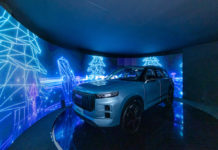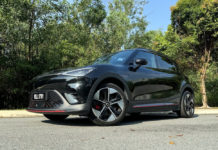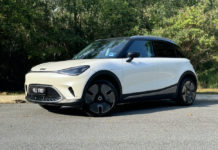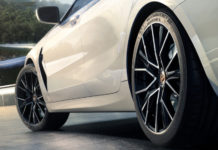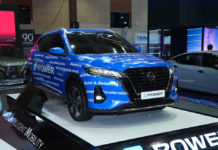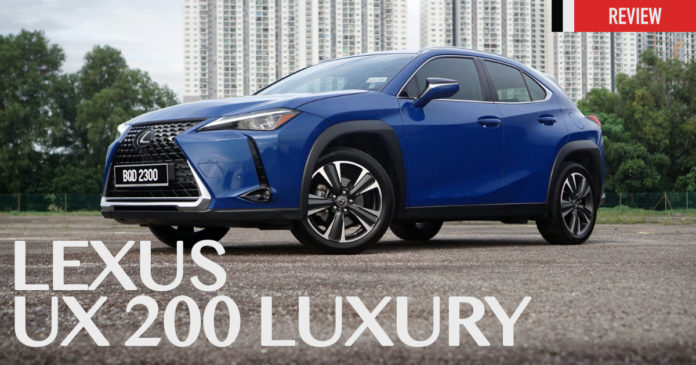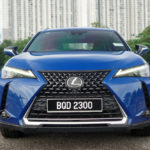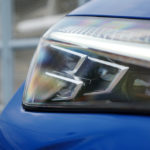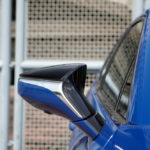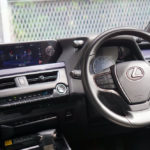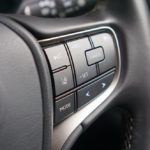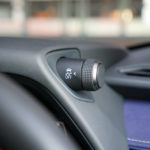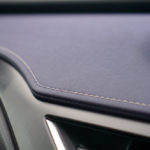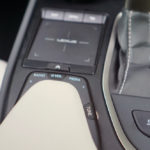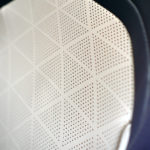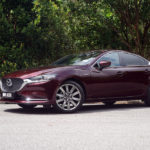In a world where luxury compact crossovers are dominated by European makes, it is on Lexus’ shoulders to give buyers something different. Although Lexus could have made its compact crossover a shrunken version of the NX or RX, the Japanese carmaker decides that the UX should look entirely different.
In terms of its exterior graphics, the Lexus UX is in a world of its own. An appearance closer to a five-door hatchback than an SUV makes the UX a head-turner. Steep front and rear screens, the slim side windows, the long bonnet and the muscular rear haunches give the UX the sleekness of a sports sedan. The rest of the design is really a harmony of angles and creases, all done in an attempt to make the UX stand out from its classmates.
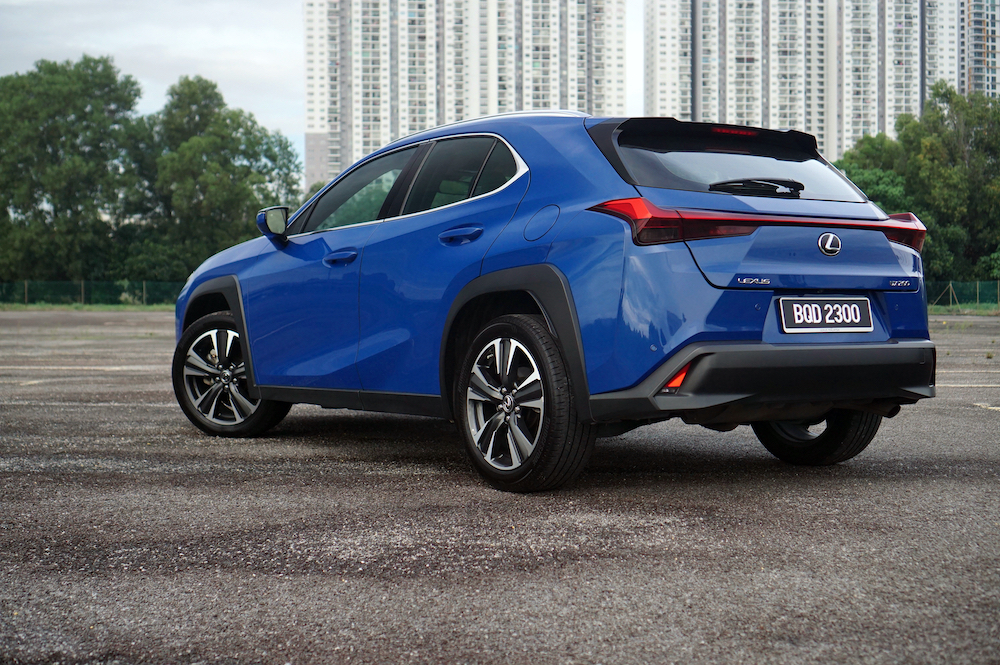
Aero planes
The spindle grille and the arrowhead DRLs put focus to the front, yet it is the rear lights that strike up conversations. Lexus has integrated winglets into its rear lights and refers to them as Aero Stabilising Blade Lights. It results in a striking light show, a long red beam stretching from left to right, wingtip to wingtip.
The UX’s sleek design isn’t just for show, it has a purpose. Starting from the pointy nose, the wind is channelled past the wheel arch mouldings to the shoulder. In the same stroke, the wind is guided to the rear, passing through the winglets, creating downforce. More than that, the airflow also reduces turbulence and lift, which keeps the vehicle planted in the corners and steady in crosswinds.
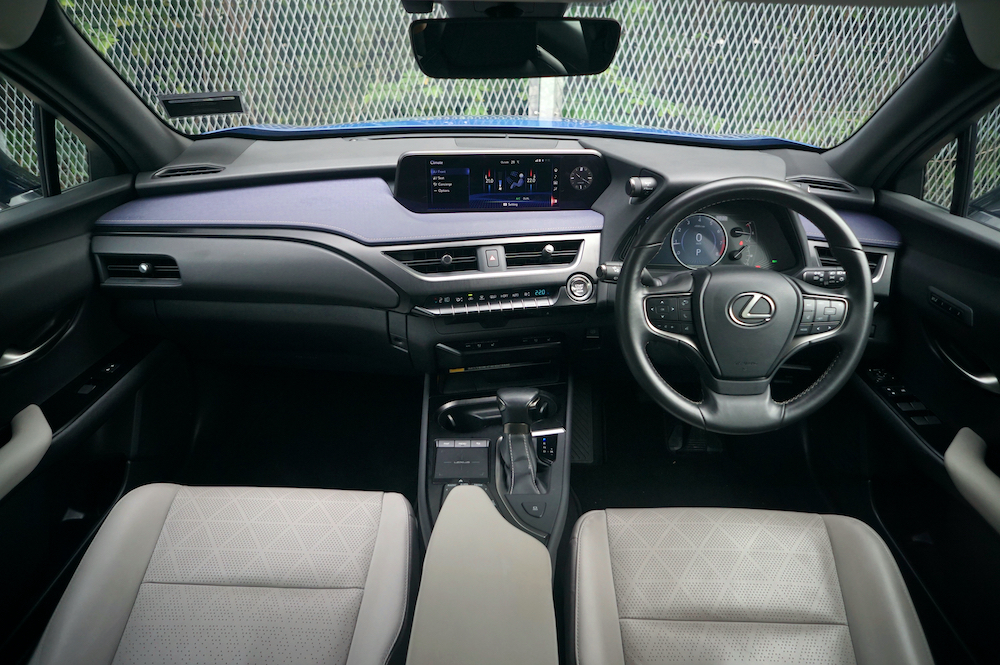
Minimalist interior with complex details
While the exterior features bold design features, the interior seems the opposite. Even if the folds and creases from the outside continue inside, there are no jarring lines that might disrupt visual harmony. Yet, this simplistic interior actually hides a sophisticated composition of elements.
Take the front seats for starters, you’ll be seating on leather upholstery that features a 1,200-year-old stitching technique. Called ‘sashiko’, this technique places up to 10 stitches per inch. The seams of Judo and Kendo uniforms are strengthened with this same stitching technique, meaning that the UX’s leather upholstery will not come undone easily.
Furthermore, the front seats feature perforations that use mathematics to optimise cold air blowing from the ventilated seats. Math is also used to align the perforations according to the curves and gradations of the seats to make them look beautifully uniform.
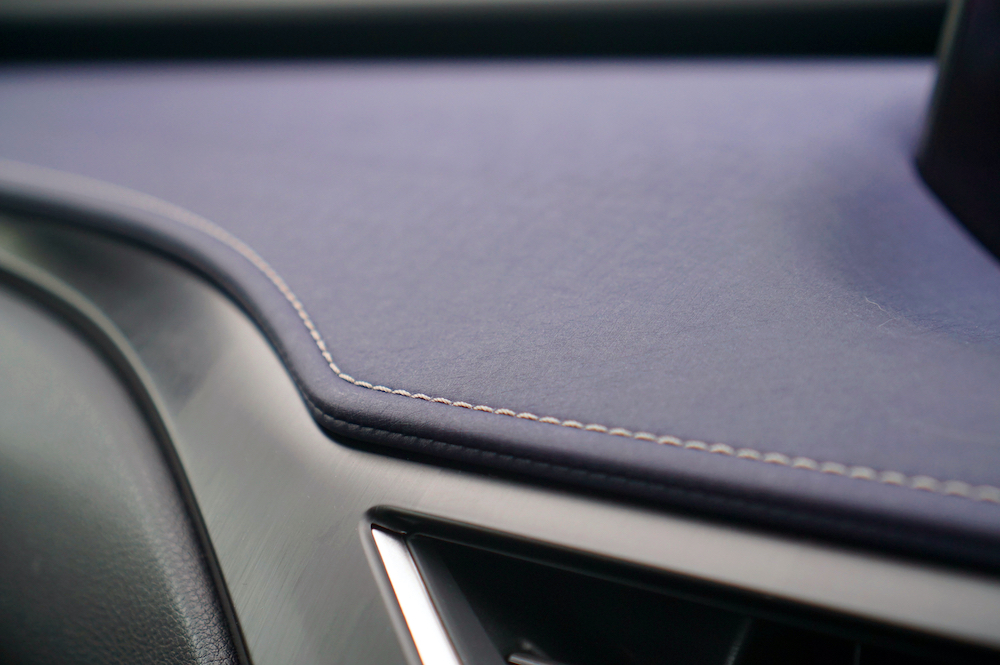
On the dashboard, the UX features a trim called ‘washi’. Inspired by paper used on sliding doors of Japanese homes, the trim has the look and feel of the material. In any case, the trim is a pleasant break away from the typical synthetic leather that upmarket vehicles usually feature.
As with other crossovers in the same class and size, fitting three at the back is challenging. In the UX, the transmission tunnel running down the middle amps up the difficulty. And the sloping roofline limits headroom. Yet, it isn’t all bad. Ample rear legroom is a soothing ointment that some might sink into just to have more headspace.
The cargo space isn’t too bad, you can certainly get away with the week’s grocery run or a weekend road trip. The 228-litre are can be expanded to 271 litres with the backrests folded down. To add convenience, the boot lid automatically opens with a wave of the foot underneath.

Power ‘whelming
The 2.0-litre Dual VVT-i engine isn’t convincing on paper, not when crossovers in the same price bracket are running with turbocharged engines, producing more horsepower per ringgit. Yet, outright speed was never a Lexus thing and having 169hp and 203Nm is, surprise surprise, enough.
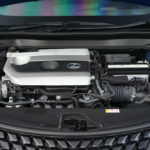
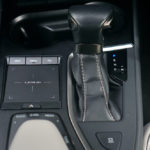

Acceleration is lively and the pace that follows is brisk. Power from the engine goes through a 10-speed CVT, which isn’t known for its urgency. The trick is having the UX start off strong from a mechanical first gear before handing the reins over to the standard pulley system, which is deemed more efficient.
What sets the UX apart from the rest is the crossover’s ride and handling. The MacPherson struts in front and, multi-link rears and Lexus’ rigid Global Architecture-Compact Platform are the bones that make the UX more car than a crossover.
The chassis comes together to offer a ride that successfully erases almost all shocks and jolts even if you’re driving on rugged tarmac. Furthermore, the UX handles with the same poise as a well-sorted hatchback, complete with the restrained body roll and quick steering.

As for safety, the UX has four advanced systems in its briefcase of tricks. The Lexus Safety System+ consists of the Pre-Collision System, Dynamic Radar Cruise Control with Stop & Go function and Lane Tracing Assist, and Adaptive High-beam System. On top of that, the UX is armed with a Blind Spot Monitor with Rear Cross Traffic Alert and Panoramic View Monitor. The Active Cornering Assist, which is programmed to cut down understeer during cornering, is included as well.
The price of the UX 200 Luxury, as tested, is on the higher side of the bracket. At RM274,998.50, the UX is priced well above its nearest rivals. Truly, the Lexus isn’t for everyone. Badge-snobs will head straight to a German make without thinking twice. And those looking for something more practical will find the Volvo XC40 pleasing.
Yet, it’s hard to deny the charms of the UX’s quirky looks and well-appointed interior. Its fuel-efficient engine may not win traffic light drag races but it has the legs for long-distance driving. Couple that with a refined ride and you’ll arrive well-rested. And in that sense, the Lexus UX 200 Luxury is well worth the asking price.
| LEXUS UX 200 LUXURY | |
| Engine | 1,987cc, inline-4, 16 valves, VVT-iE (intake), VVT-i (exhaust) |
| Transmission | 10-speed Direct Shift CVT, front-wheel drive |
| Power | 169hp @ 6,600rpm |
| Torque | 205Nm @ 4,800 rpm |
| Performance | 0-100: 9.2s Max speed: 190kph Fuel economy: 6.2l/100km CO2 emission: 145g/km |
| Price | RM274,998.50 |




